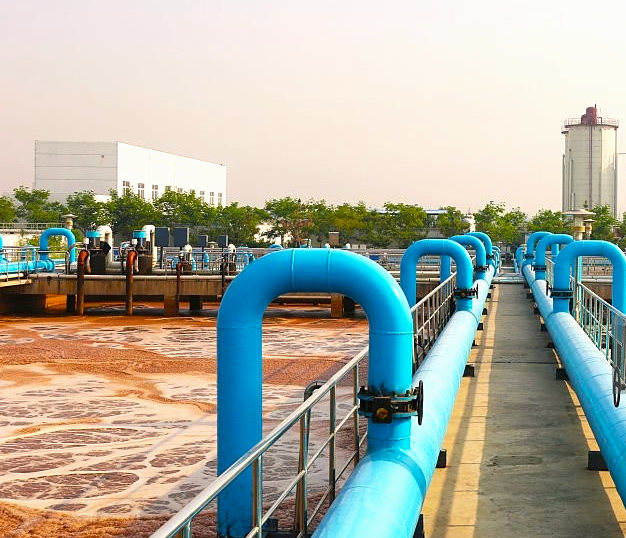If you are wondering what is an effluent treatment plant, well, you have come to the right spot now. Here we will discuss more about it, its significance, and especially why effluent treatment plants are important for the industrial sector. So, read on…
What exactly is an effluent treatment plants?
An effluent treatment plant is a crucial system mainly used by factories and industries to purify their wastewater before it gets flushed into the environment. However, it is important to note that the wastewater must meet the safety standards that are advised by the environmental authorities before you do so.
The significance of an effluent treatment plants

You can see that effluent treatment plants play a significant role in protecting our nature. This is mainly because industries often produce a massive quantity of toxic waste. If not treated appropriately, this waste can harm our precious ecosystem considerably. This is exactly where you get to know the significance of an effluent treatment plant. It is true to say that, a wastewater treatment plant is instrumental in detoxifying, neutralizing, and treating the much harmful waste produced by the industries.
The major roles of effluent treatment plants
- Public health safety
An effluent treatment plant plays a major role in safeguarding public health by eliminating harmful and toxic chemicals from industrial wastewater. Untreated effluents discharged by the industries come with hazardous pathogens and deadly chemicals. These harmful effluents can pollute various sources of drinking water and thus pose a potential threat to people’s health. Therefore, with effectual treatment procedures, you can rest assured that these harmful pollutants get neutralized before this water is either released into nature or reused.
- Protection of our ecosystems
When discharged untreated, industrial wastewater holds the deadly potential to destroy the surrounding vegetation, aquatic life, and soil health. So, you can see that effluent treatment plants play a significant role in protecting our natural water bodies such as lakes and rivers along with the safety of the coastal ecosystem. This is done by substantially minimizing the load of contaminants released into the water bodies. When this process is carried out effectively, it will ensure there is a proper ecological balance along with the preservation of biodiversity.
- Legal compliance
Regulatory authorities all over the world have set certain safety standards related to wastewater treatment to curb pollution. Non-compliance with these safety regulations can often lead to serious penalty charges, and legal actions and it even can be the reason for the shutdown of the industrial facility. Therefore, ETP plants help various industries and factories adhere to these safety policies. By doing so they can ensure proper regulatory compliance and avoid hefty penalties.
- Encouraging sustainable industrial development
With the rapidly growing importance of nature conservation, nowadays industries are constantly encouraged to implement sustainable practices. So, you can see that industrial waste management is done effectively. This in turn helps to minimize harmful environmental footprint and supports sustainable industrial growth.
Effective industrial waste management further helps to improve the reputation of a company thereby making it more attractive to potential investors and nature-conscious consumers. In this context, it is important to note that proper wastewater treatment comes with so many benefits.
- Promotes water reuse & Conservation
You should not forget that ETP plants are instrumental in making the treated effluents usable for different industrial applications such as irrigation, boiler operations, and cooling systems. This in turn helps industries to avoid using freshwater resources and thereby aids in the conservation of natural water resources. This is indeed a significant advantage, especially in regions where water is scarce. Adding to that, industrial waste management also helps to make substantial cost savings and thus company operations become economically more feasible.
Major processes of a wastewater treatment system
- Primary treatment
This is the phase where the ETP plants remove larger solid waste materials, grease, and oil from the industrial effluent. You can see that the primary treatment phase is inclusive of stages such as screening and sedimentation along with filtration. With filtration, you remove coarse waste materials.
- Secondary treatment
This is the phase of the wastewater treatment system where dissolved organic substances are removed via biological procedures. In this stage, you use features such as activated sludge and biofilters along with aerated lagoons to enhance microbial activity. This helps you to break down the organic contaminants present in the wastewater.
- Tertiary treatment
This third phase of the wastewater treatment system is an advanced procedure that helps you further purify the industrial effluent via methods known as additional filtration and chemical coagulation combined with disinfection. The tertiary treatment phase also has steps such as reverse osmosis and ion exchange along with activated carbon filtering. These steps enable you to successfully remove the pathogens and residual pollutants. By doing so, you can rest assured that the processed water meets the environmental standards.
- Sludge management
The sludge generated by the wastewater treatment plant is collected, further treated, and then responsibly disposed of.
Applicable areas of the wastewater treatment plant
- Pharmaceutical companies
- Paint industries
- Paper companies
- Chemical industries
- Beverage companies
- Textile & dye companies
- Food & processing industries
Different types of ETPs
Wastewater treatment plants come in different configurations and designs. That depends on the specific nature of an industry and the effluents. Some of the common types of ETPs are given below.
- Chemical ETP
- Biological ETP
- Combined ETP
Conclusion
ETPs are now indispensable for companies and industries that aim to curtail their impact on nature and encourage sustainability. The effectual removal of pollutants from industrial wastewater helps in the protection of public health, and the preservation of ecosystems, and also assures compliance with environmental regulations. Their great capability to enable the reuse of water and ensure natural resource conservation encourages various industries to foster eco-friendly practices. As industries are increasing in number, the need for effective wastewater management is also on the rise. By investing in a standard ETP, industries can enjoy long-term economic viability and also pave the way for a safer environment. Contact Northamps now if you also want to make a wise and worthy investment for your company.


